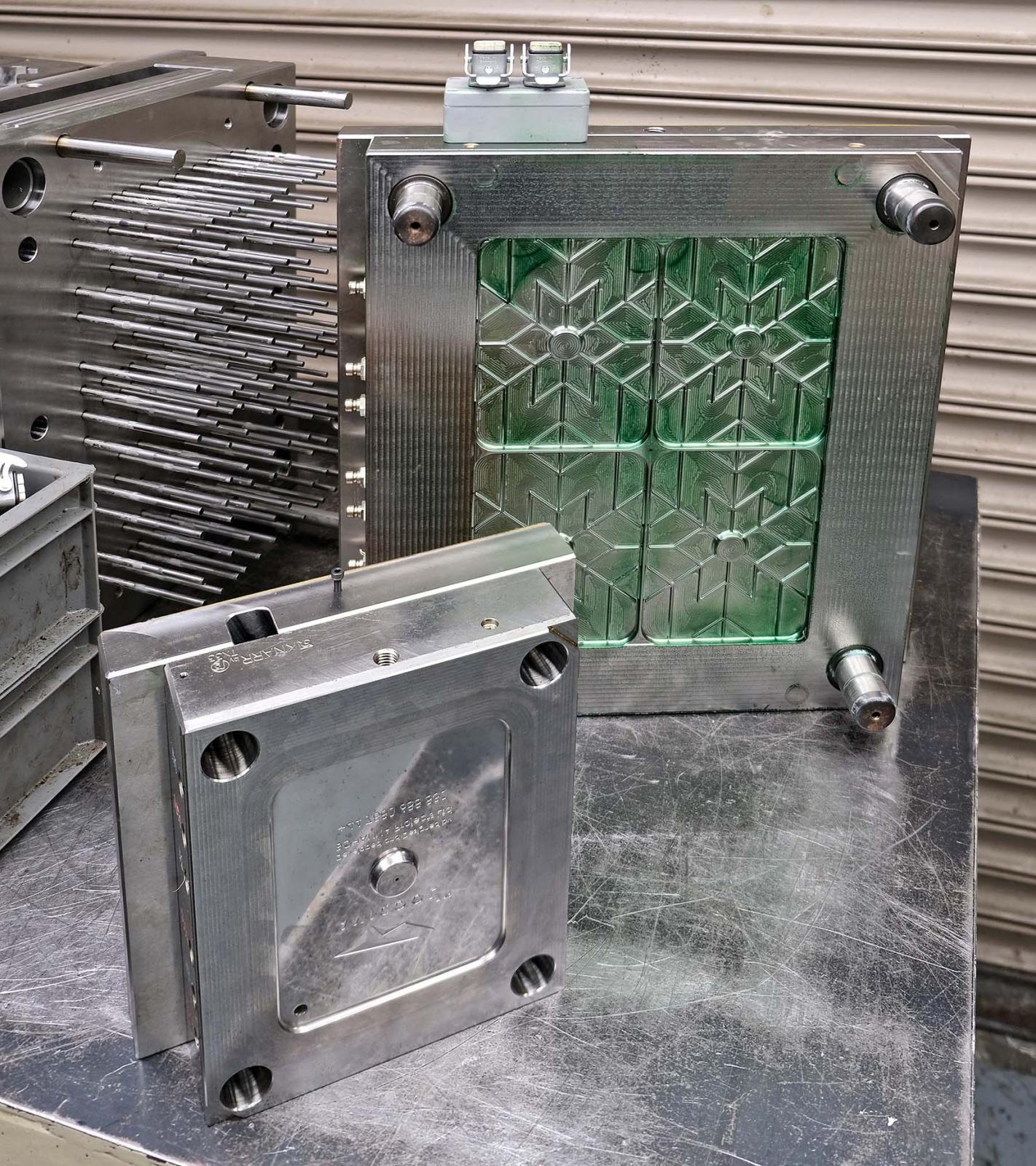
Whitchurch toolmaker and plastic injection moulding specialist BM Injection has moved from time-consuming electric discharge machining of moulds and dies to direct milling of the tool steels in their hardened state.
These can be up to 58 Rc (Rockwell C Hardness) in the case of 2083 used for injection moulding highly abrasive thermoset plastics.
Earlier this year the company invested in a second 5-axis VMC, a Japanese-built Makino D200Z supplied by UK agent NCMT (www.ncmt.co.uk), for rough and finish milling of tool steels to single-figure micron accuracy. Machining is now carried out in one hit, including complete milling of the gate, whereas at least two operations were previously needed, or else three if a route involving milling plus electrode production and EDM was chosen. Consequently, fewer skilled operators are now needed, cutting production costs and alleviating the problem of recruiting experienced staff.
Machining in one clamping by automatically repositioning the workpiece in-cycle using the two rotary axes brings higher accuracy by eliminating tolerance build-up. The Makino has internal sensors and strategic cooling of the spindle, ballscrews and machine structure that allow phenomenally high precision to be held in the Whitchurch factory, even though it is not temperature controlled. Directors Tim Combes and his son Mark pointed to a 54 Rc Stavax test piece machined by Makino under controlled conditions in its test laboratory in Japan to 2 µm total tolerance, commenting that double that is achievable on BM Injection's shop floor.
Tim advised, "Dimensional accuracy is critical when producing moulds and dies. We need to hold ± 0.012 mm on cavity dimensions, interpolated diameters and hole positions.
"Surface finish is also important. A mould that takes 20 hours to hand polish if it is produced on a sparker can, after direct milling, be finished in three to four hours on the Makino, which is an enormous labour cost saving. Lead-time from order to completion has been cut by an average of 40 per cent."
Mark advised, "In the case of side-action mould tools, we previously needed to grind them prior to die sinking to achieve the required finish. Now nothing needs grinding and the moulds are finished in one set-up on the D200Z.
"Also, as the machine's high volumetric accuracy leads to less hand polishing of cavities, it is easier to hold the true shape of the mould and die because less material is being removed. This is especially important when making tools for the production of lenses and other optics."
Established over 30 years ago, BM Injection operates from a 10,000 sq ft manufacturing facility on the Ardglen Industrial Estate in Whitchurch. 8 in 10 moulds produced, which weigh up to two tonnes, are used internally for injection moulding of thermoplastic and thermoset products in medium to large volumes in 22 moulding machines rated from 12 to 250 tonnes, some with a pick and place robot. Customers are mainly in the aerospace, automotive, domestic appliance, leisure, sports, safety, optics and transportation sectors.